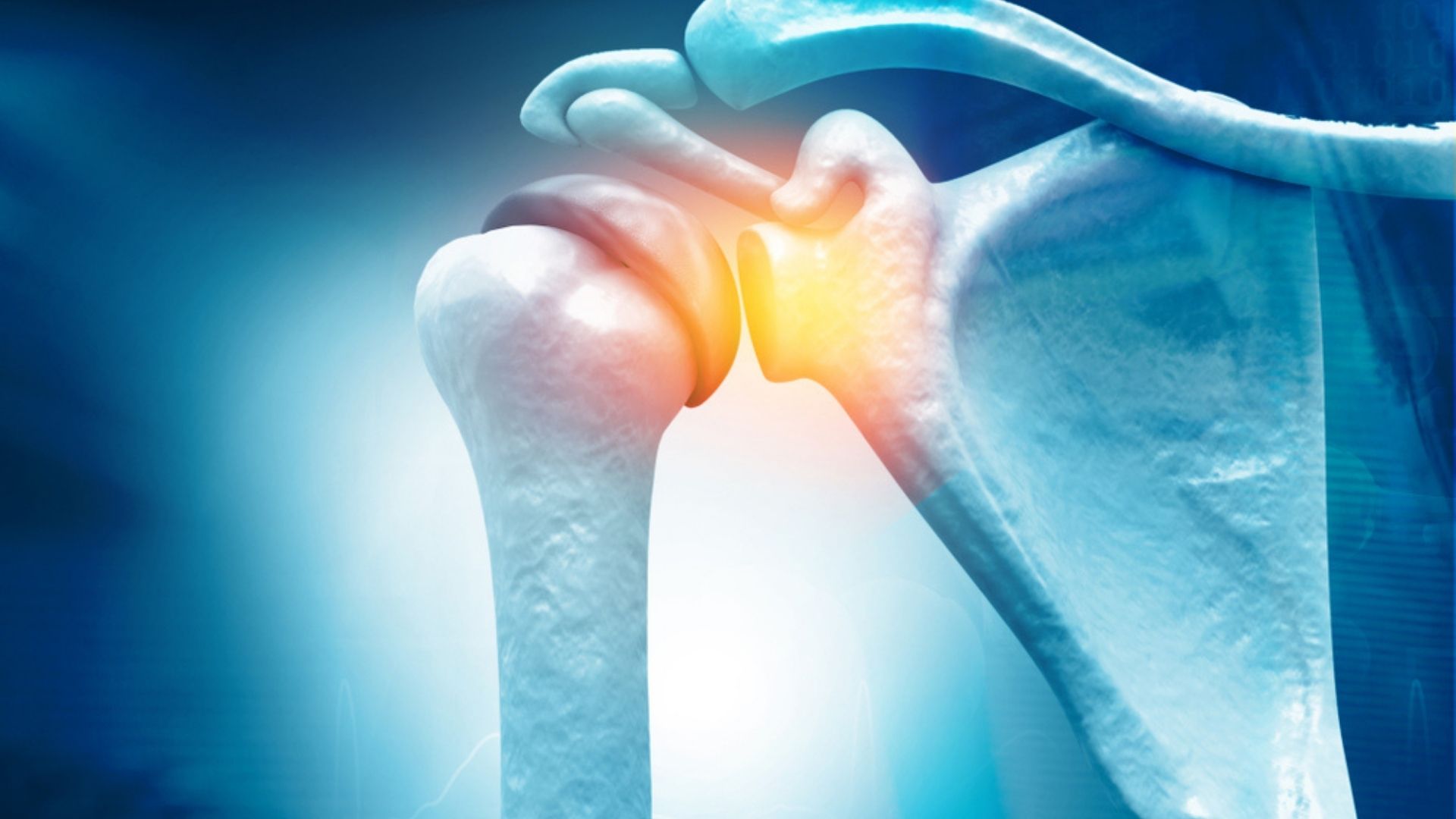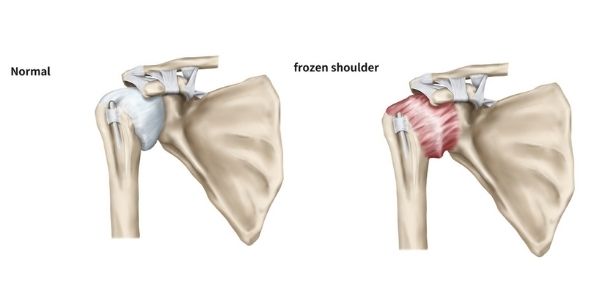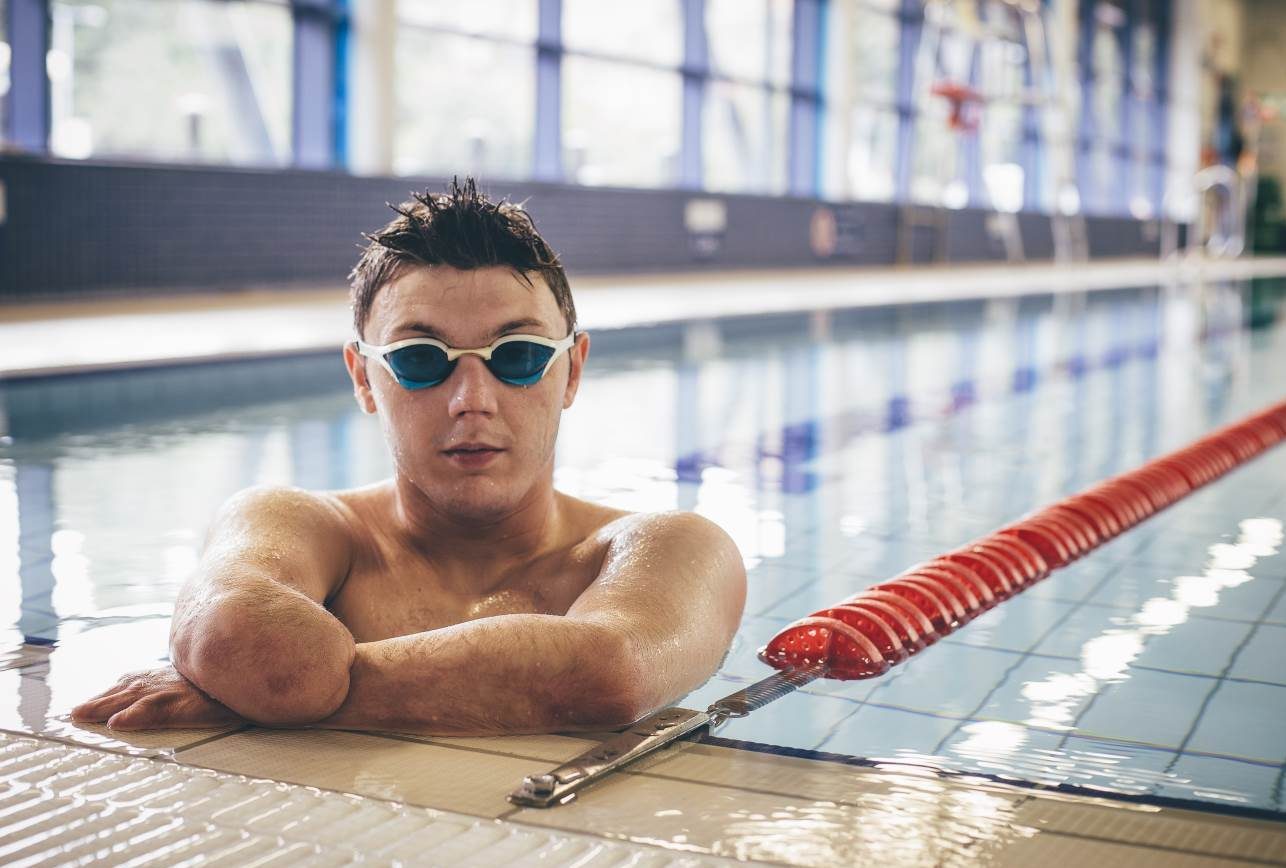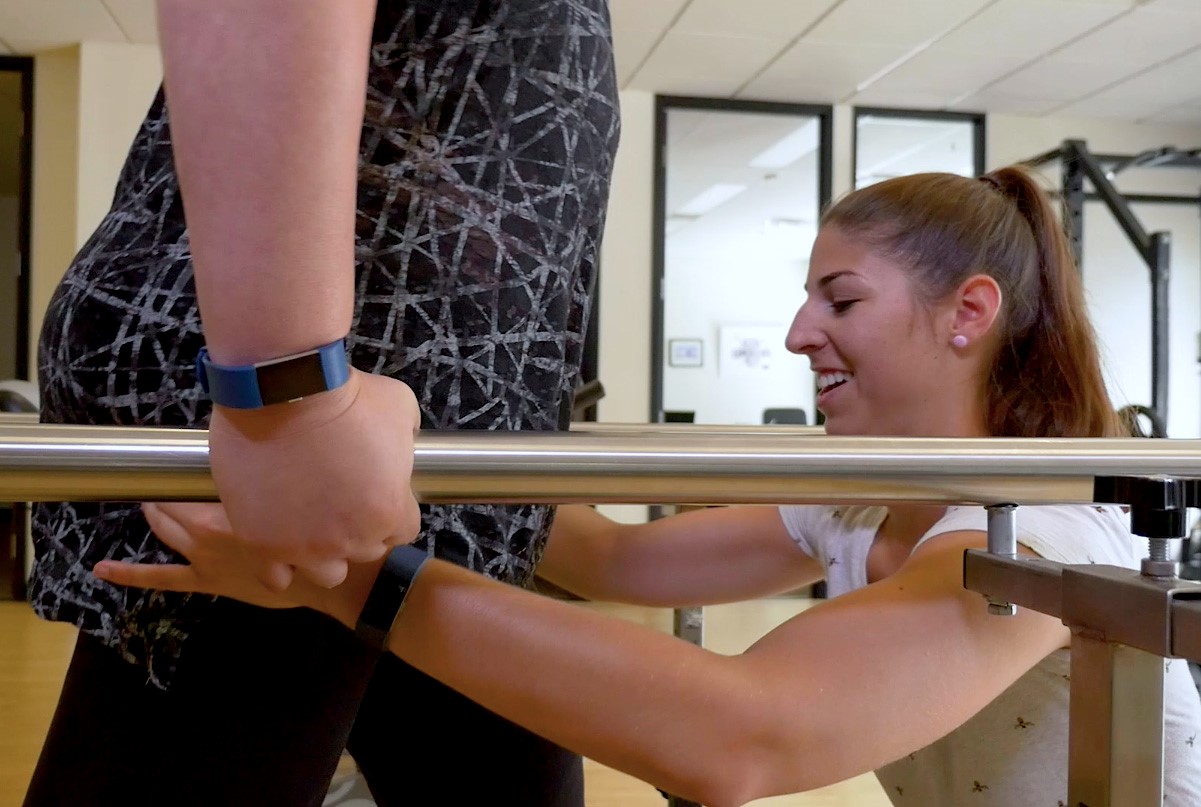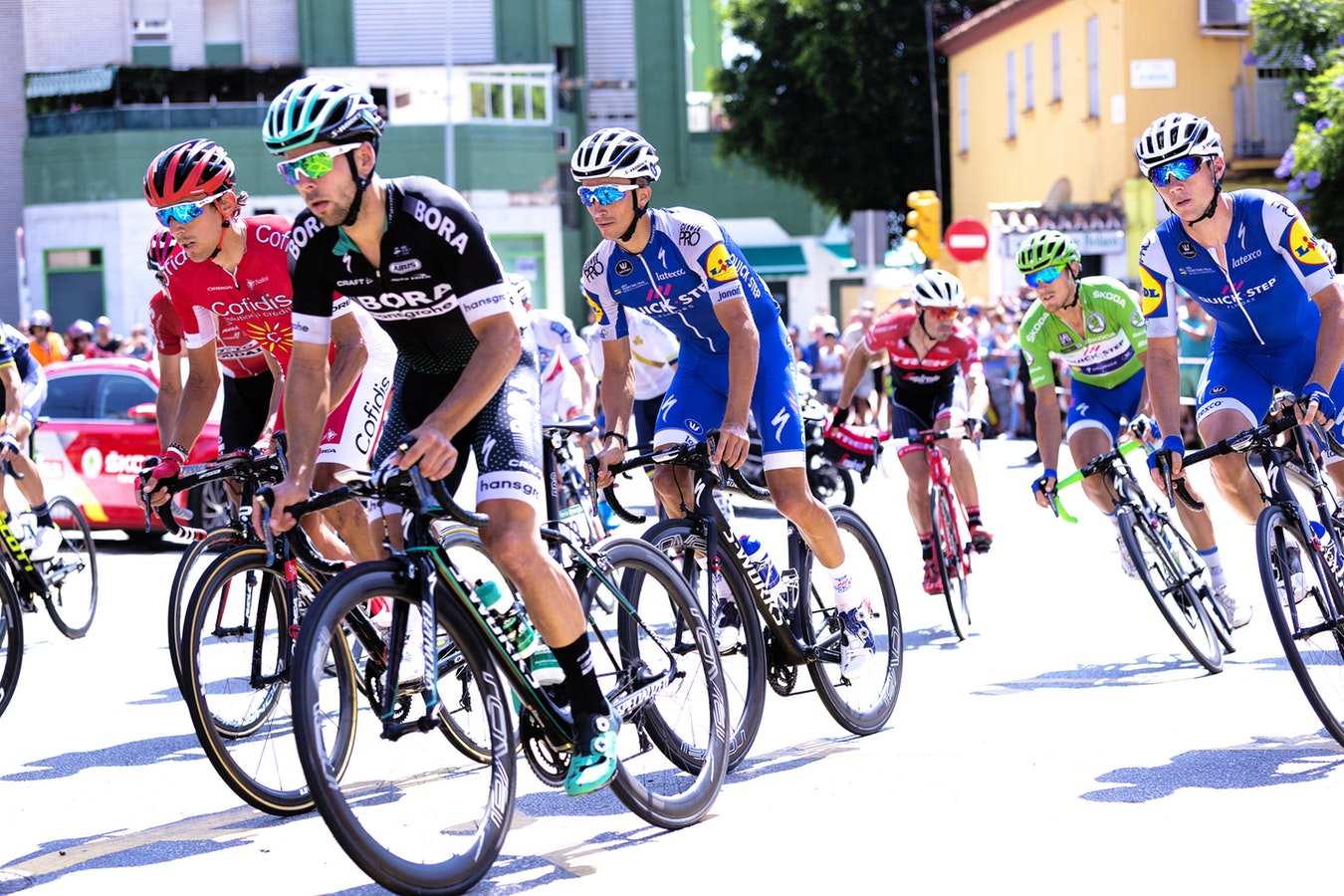Frozen shoulder is a painful and often debilitating disorder. Although, the cause of frozen shoulder is unknown, there are effective treatments that are successful for most patients. In this article, we explore the stages of frozen shoulder and highlight frozen shoulder physiotherapy treatment and prevention strategies.
What is Frozen Shoulder?
Frozen shoulder, also known as adhesive capsulitis, is a painful disorder that results in stiffness and loss of movement in the shoulder.
The shoulder is a complex joint, that sacrifices stability for great ranges in movement. Frozen shoulder is characterized by inflammation of the tissues surrounding the joint. These tissues that surround the joint and hold it together are called the capsule. In frozen shoulder, the capsule becomes inflamed which leads to scarring and tightening of the joint causing pain and limitations in movement.
What Causes Frozen Shoulder?
The cause of frozen shoulder is not fully understood. Some risk factors have been associated with the onset of frozen shoulder including:
- Diabetes mellitus (with a prevalence up to 20%)
- Stroke
- Thyroid disorder
- Shoulder injury
- Dupuytren disease
- Parkinson disease
- Cancer
- Complex regional pain syndrome[i]
Frozen shoulder occurs four times more often in females than males.[ii] It is most common in people 40 to 60 year of age. In the early stages this condition can resemble other shoulder conditions, so getting the right diagnosis is important.
What are the Symptoms of Frozen Shoulder?
While there is typically no traumatic, infectious, or inflammatory event, clients will describe new shoulder pain and restriction in movement. The pain is often generalized around the shoulder and typically worse at night.
3 Stages of Frozen Shoulder
Frozen shoulder is often clinically described as having three stages of symptoms:
- The Freezing Stage – During this phase there is large amounts of inflammation in and around the joint causing severe pain and moderately restricted movement. The motions of the shoulder are restricted in both active and passive movements and is characterized by limitations in certain directions of shoulder movement. This stage may last 2 to 4 months.
- The Frozen Stage – This stage of frozen shoulder may last from 4-12 months.[iii] The early phases of this stage can be painful, but later in this stage there is a gross restriction in range of motion. Pathologically, this is when inflammation decreases and there is widespread fibrosis(scarring) of the capsule and ligaments.
- The Thawing Stage – In stage three there is minimal pain and gradual return of movement as both inflammation and scarring resolves. This phase can last up to 26 months.
Frozen Shoulder Prevention
Although the cause of frozen shoulder is unknown, in some cases immobility after shoulder surgery or an injury can contribute to the development of frozen shoulder. Movement guidelines and pain management is crucial to help keep the shoulder mobile after shoulder surgery or injury.
Frozen Shoulder Physiotherapy Treatment
Research suggests that conservative treatment of frozen shoulder is successful in up to 90 percent of patients.[iv] Conservative management involves non operative options such as medication, steroid injections, and physiotherapy.
Physiotherapy intervention is based on the stage and symptom presentation of frozen shoulder. Early intervention involves patient education, pain management and gentle stretching exercises. These exercises consist of specific shoulder mobilization exercises to maintain shoulder range of motion within a pain free window.
In later stages physiotherapy intervention can consist of further stretching exercises, postural exercises, strengthening and pain management techniques. Pain management techniques can include acupuncture, heat, ultrasound, shockwave therapy and manual therapy.
A home exercise program is also prescribed to maintain shoulder mobility and strength throughout the various phases. Hydrotherapy can also be helpful in maintaining shoulder mobility in a pain free environment.
At Propel Physiotherapy our experienced and knowledgeable physiotherapists can help with management and treatment of frozen shoulder. Our therapists will help provide the right treatment approach depending on your stage of recovery. Come see how we can help you manage pain and optimize your function.
References
[i] Mezian K, Coffey R, Chang KV. Frozen Shoulder. [Updated 2021 Sep 1]. In: StatPearls [Internet]. Treasure Island (FL): StatPearls Publishing; 2021 Jan-.
[ii] Murakami AM, Kompel AJ, Engebretsen L, Li X, Forster BB, Crema MD, Hayashi D, Jarraya M, Roemer FW, Guermazi A. The epidemiology of MRI detected shoulder injuries in athletes participating in the Rio de Janeiro 2016 Summer Olympics. BMC Musculoskelet Disord. 2018 Aug 17;19(1):296.
[iii] Pandey, V., Madi, S. Clinical Guidelines in the Management of Frozen Shoulder: An Update!. JOIO 55, 299–309 (2021). https://doi.org/10.1007/s43465-021-00351-3
[iv] Ibid.
Written by

